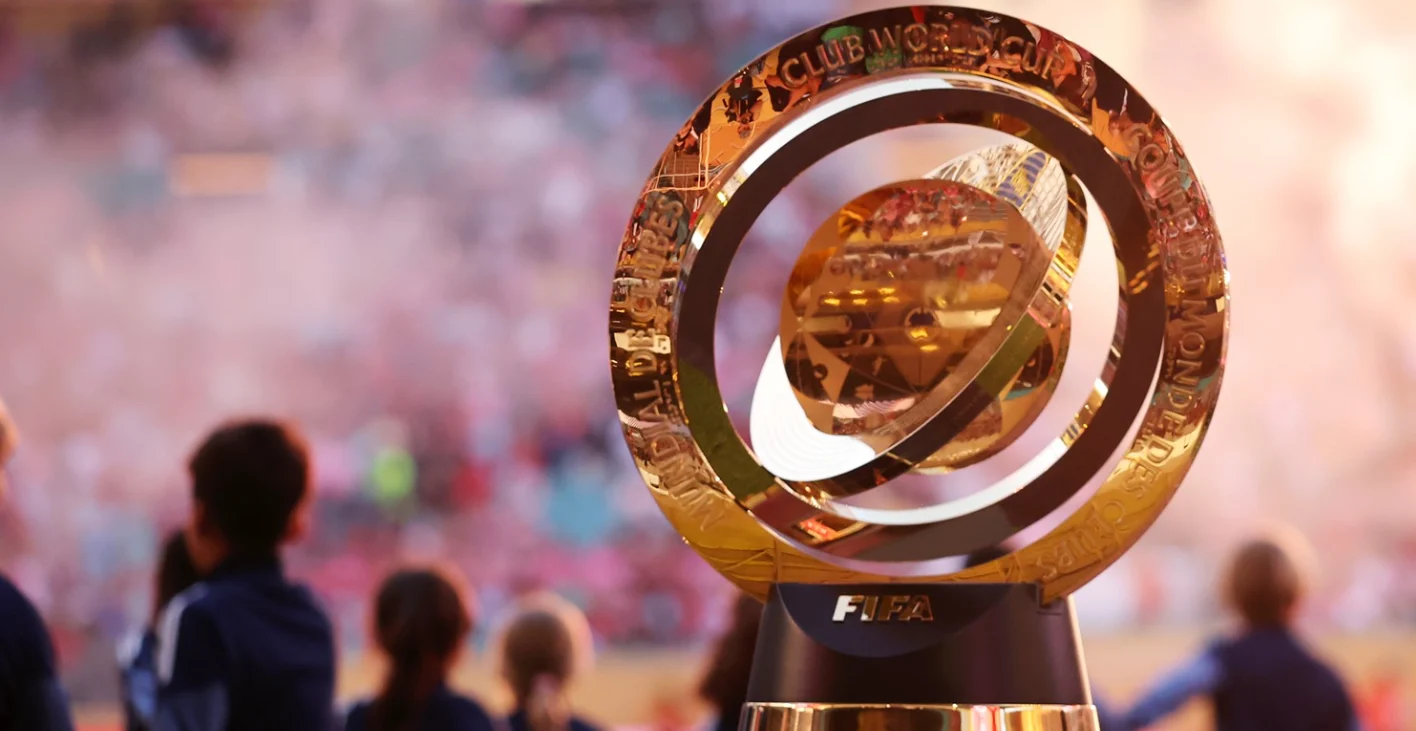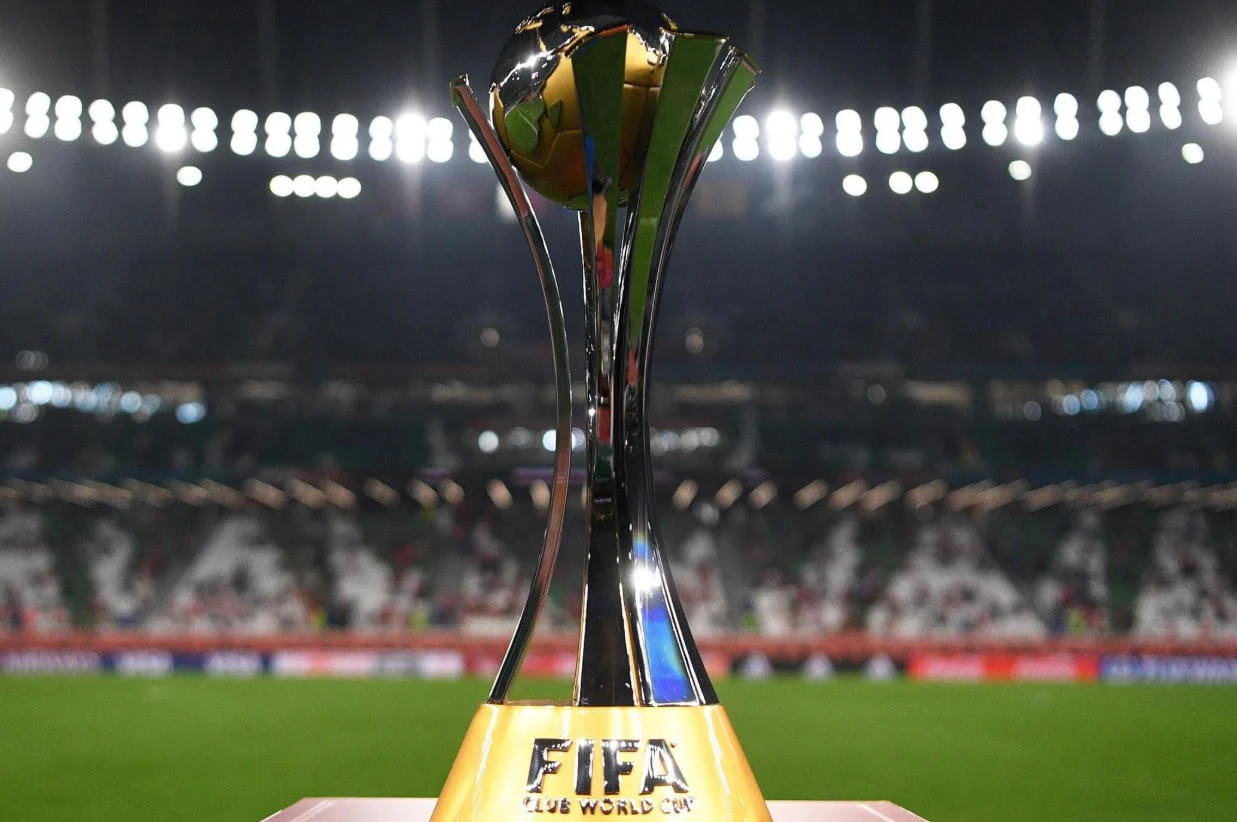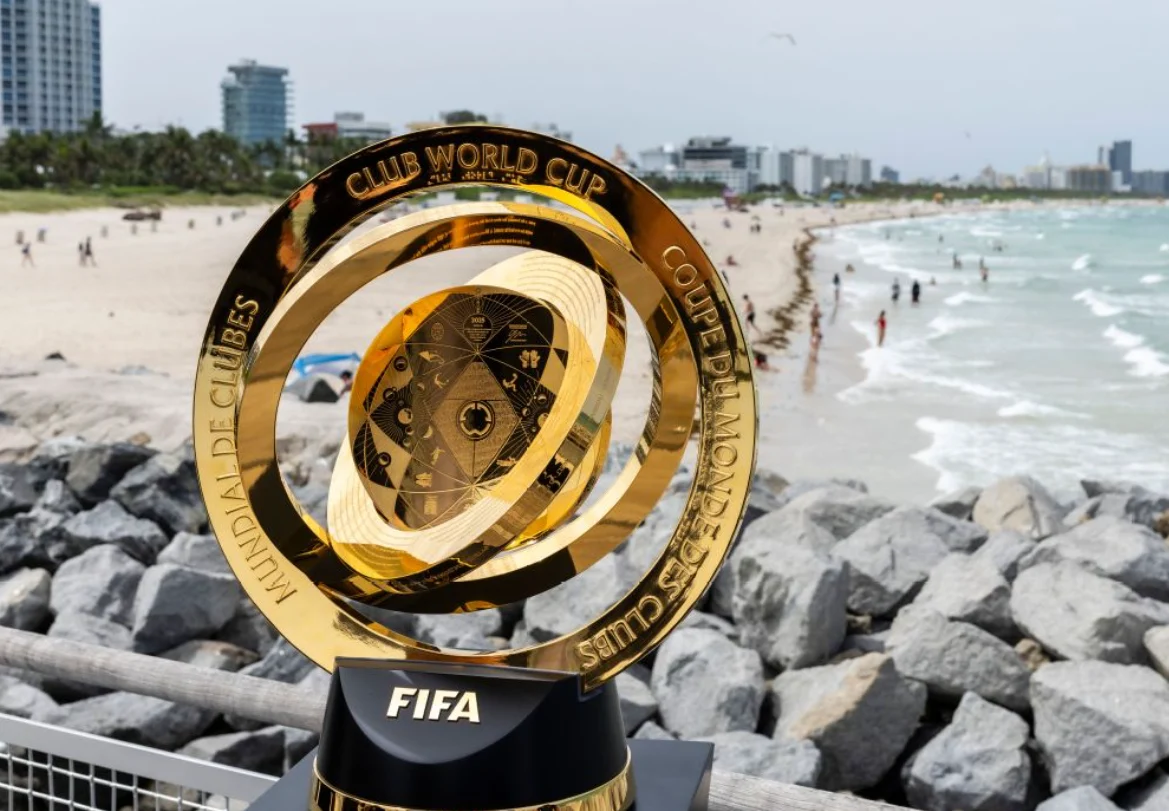Predictions for the 2025 FIFA Club World Cup
The excitement for the 2025 FIFA Club World Cup is reaching new heights, as football fans worldwide await the clash of top clubs from every continent. This expanded edition promises star talent, unpredictable outcomes, and fresh storylines. In this guide, we cover every aspect of the tournament—from the schedule and team line ups to expert predictions and historical analysis—providing detailed tables and insights into what makes the 2025 edition truly special.
Date and Venue of the 2025 FIFA Club World Cup
 The 2025 FIFA Club World Cup is set to mark a significant milestone, as it will be the largest edition yet, with an expanded roster of teams and a comprehensive schedule spanning several cities. The event is scheduled to take place in the United States, offering world-class stadiums and state-of-the-art facilities for players and fans alike. The tournament will begin on June 15, 2025, and conclude with the highly anticipated final on July 12, 2025.
The 2025 FIFA Club World Cup is set to mark a significant milestone, as it will be the largest edition yet, with an expanded roster of teams and a comprehensive schedule spanning several cities. The event is scheduled to take place in the United States, offering world-class stadiums and state-of-the-art facilities for players and fans alike. The tournament will begin on June 15, 2025, and conclude with the highly anticipated final on July 12, 2025.
This year’s competition will unfold in multiple venues across major U.S. cities, including New York, Los Angeles, Miami, Dallas, and Atlanta. Each city will host a series of group matches and knockout rounds, with the final match being held at the MetLife Stadium in New Jersey. The meticulous planning behind the FIFA Club World Cup 2025 schedule ensures an optimal experience for participants and fans, with matches distributed evenly throughout the tournament period.
| Event | Date | City | Venue | Time (Local) |
| Opening Match | June 15, 2025 | Los Angeles | SoFi Stadium | 19:00 |
| Group Matches | June 15–30, 2025 | Various | Multiple Venues | Various |
| Quarterfinals | July 2–4, 2025 | Dallas | AT&T Stadium | 20:00 |
| Semifinals | July 8–9, 2025 | Miami | Hard Rock Stadium | 20:00 |
| Final | July 12, 2025 | New Jersey | MetLife Stadium | 21:00 |
Group stage prediction
The group stage of the 2025 FIFA Club World Cup promises to be intensely competitive, featuring clubs from all six confederations. With 32 teams participating, the draw is set to create groups filled with a blend of established giants and emerging contenders. Group matches will determine which teams advance to the knockout stage, with every point being crucial in such a balanced field. Observers are already making FIFA Club World Cup 2025 predictions based on recent form, squad strength, and historical performance.
Teams will be divided into eight groups of four, with the top two from each group progressing. The variety of playing styles, tactical approaches, and regional rivalries is expected to make the group stage highly unpredictable. Early indicators from pre-tournament friendlies and domestic league performances suggest that even traditional powerhouses could face stiff challenges from ambitious underdogs.
Key matches that can change the course of the groups
Some matches in the group stage are poised to play a pivotal role in determining which teams advance to the next round. For instance, a clash between Real Madrid and Flamengo could decide the top spot in their group. A face-off between Al Ahly and Monterrey could shape the fortunes of Group C. Upsets in these matches can tilt the balance of the group and alter subsequent FIFA Club World Cup 2025 predictions.
The intensity of these key matches often brings out the best in teams and players, sometimes leading to memorable moments and historic goals. A surprise victory by an underdog can put favorites under immense pressure in their remaining games. Such outcomes not only impact immediate standings but also change the trajectory of the knockout stage, making each match highly significant.
Potential dark horses and top favorites
Among the teams, some are considered favorites based on recent continental success and squad depth, such as Manchester City, Real Madrid, and Palmeiras. However, every edition also has its share of dark horses who can spring surprises. For 2025, teams like Al Hilal and Club León are widely regarded as potential dark horses capable of upsetting more established clubs. Their recent performances in continental tournaments have earned them respect and a closer look in the FIFA Club World Cup predictions.
Conversely, favorites will have to guard against complacency and be prepared for tough challenges in every fixture. As the tournament progresses, the gap between favorites and underdogs often narrows, creating opportunities for unexpected results. The balance between known strengths and the element of surprise makes the group stage particularly fascinating for analysts and fans alike.
| Club Name | Country | Confederation | Pre-Tournament Rating* |
| Manchester City | England | UEFA | 94 |
| Real Madrid | Spain | UEFA | 93 |
| Palmeiras | Brazil | CONMEBOL | 91 |
| Al Hilal | Saudi Arabia | AFC | 87 |
| Club León | Mexico | CONCACAF | 85 |
| Al Ahly | Egypt | CAF | 84 |
| Urawa Red Diamonds | Japan | AFC | 82 |
| Auckland City | New Zealand | OFC | 80 |
| Monterrey | Mexico | CONCACAF | 86 |
| Wydad Casablanca | Morocco | CAF | 83 |
Statistics of winners in previous years
 A review of the FIFA Club World Cup winners list provides valuable insights into the competition’s trends and patterns. Historically, European and South American teams have dominated, but recent years have seen clubs from other confederations closing the gap. The statistics also highlight how certain clubs, like Real Madrid and Barcelona, have established themselves as perennial contenders.
A review of the FIFA Club World Cup winners list provides valuable insights into the competition’s trends and patterns. Historically, European and South American teams have dominated, but recent years have seen clubs from other confederations closing the gap. The statistics also highlight how certain clubs, like Real Madrid and Barcelona, have established themselves as perennial contenders.
Such historical data is crucial for anyone interested in 2025 FIFA Club World Cup predictions, as past results often inform expectations for the upcoming tournament. It is also notable how some teams have consistently reached the final stages, underscoring the importance of experience and tradition.
| Year | Winner | Runner-Up | Final Score | Host Country | Confederation |
| 2015 | Barcelona | River Plate | 3-0 | Japan | UEFA |
| 2016 | Real Madrid | Kashima Antlers | 4-2 (AET) | Japan | UEFA |
| 2017 | Real Madrid | Grêmio | 1-0 | UAE | UEFA |
| 2018 | Real Madrid | Al Ain | 4-1 | UAE | UEFA |
| 2019 | Liverpool | Flamengo | 1-0 (AET) | Qatar | UEFA |
| 2020 | Bayern Munich | Tigres UANL | 1-0 | Qatar | UEFA |
| 2021 | Chelsea | Palmeiras | 2-1 (AET) | UAE | UEFA |
| 2022 | Real Madrid | Al Hilal | 5-3 | Morocco | UEFA |
| 2023 | Manchester City | Fluminense | 2-0 | Saudi Arabia | UEFA |
| 2024 | Palmeiras | Real Madrid | 1-1 (4-2 pen) | USA | CONMEBOL |
Numbers vs. intuition: different forecasting models
As the 2025 FIFA Club World Cup approaches, predictions are being generated through a combination of quantitative models and subjective analysis. Some rely heavily on numbers, using complex algorithms and statistical databases to calculate likely outcomes, while others emphasize the “feel” of the tournament and the intangibles that numbers may miss. Both approaches are reflected in contemporary FIFA Club World Cup predictions, contributing to a diverse landscape of opinions.
Analysts have developed models that incorporate player fitness, historical data, and tactical trends, while some fans and commentators still trust gut feelings and observations from recent matches. The interplay between data-driven insights and human intuition makes forecasting for this tournament particularly dynamic. Understanding the strengths and limitations of each method is key to interpreting 2025 FIFA Club World Cup predictions and forming realistic expectations for the event.
Artificial intelligence and statistical forecasts
Artificial intelligence has become a leading tool in sports forecasting, using machine learning to process vast amounts of data. AI models for the FIFA Club World Cup 2025 predictions analyze match statistics, player performance metrics, and even weather patterns to generate probability-based outcomes. These systems can quickly adapt to new information, providing up-to-date predictions as the tournament unfolds.
However, even the most advanced AI can be caught off guard by unexpected developments, such as injuries or sudden changes in team dynamics. While AI provides valuable guidance for FIFA Club World Cup 2025 predictions winner discussions, it is not infallible. The unpredictable nature of football ensures that surprises remain a possibility, regardless of what the numbers suggest.
Opinions of expert analysts
Expert analysts approach predictions with a blend of experience, tactical knowledge, and current form analysis. They consider factors like coaching strategies, squad rotations, and the psychological state of teams leading into the FIFA Club World Cup 2025 predictions. Their insights often provide a different perspective than purely statistical forecasts, taking into account elements that are difficult to quantify.
Many experts believe that the expanded format will favor deeper squads, giving an edge to clubs like Manchester City and Real Madrid. At the same time, they warn against underestimating motivated outsiders with something to prove. As always, the collective wisdom of analysts forms an important pillar in the discussion around FIFA Club World Cup predictions.
Fan surveys and community choice
 Fan engagement is a crucial component in shaping the narrative around major tournaments. Surveys and online polls have shown a diverse range of expectations for the 2025 FIFA Club World Cup. Supporters often vote with their hearts, favoring local heroes or sentimental favorites, but community choices can sometimes reveal underrated teams or sleeper picks for the FIFA Club World Cup 2025 predictions winner.
Fan engagement is a crucial component in shaping the narrative around major tournaments. Surveys and online polls have shown a diverse range of expectations for the 2025 FIFA Club World Cup. Supporters often vote with their hearts, favoring local heroes or sentimental favorites, but community choices can sometimes reveal underrated teams or sleeper picks for the FIFA Club World Cup 2025 predictions winner.
The influence of social media and fan forums continues to grow, making community choice an increasingly important factor in how outcomes are anticipated. Many fans have picked clubs like Palmeiras and Al Ahly as potential disruptors, reflecting the passion and optimism that characterize football at every level.
Historical patterns vs. modern reality
The FIFA Club World Cup 2025 predictions has a rich history of surprises and trends, but the sport itself is constantly evolving. As football tactics, player conditioning, and tournament formats change, so too does the accuracy of historical comparisons. For the 2025 FIFA Club World Cup, many are debating how much the past should influence current predictions.
Statistical reviews of previous editions suggest that certain confederations have been more successful, but modern football is more unpredictable than ever. The combination of tradition and innovation creates a fascinating dynamic, as teams attempt to break new ground while respecting the lessons of previous tournaments.
Do past trends matter?
While historical trends can provide valuable context, they are not always reliable indicators of future results. Teams evolve, strategies shift, and unforeseen variables often play a decisive role in the outcome of tournaments like the FIFA Club World Cup. Recent editions have seen favorites stumble and underdogs thrive, challenging the assumption that the past will repeat itself.
For analysts making 2025 FIFA Club World Cup predictions, it is essential to weigh tradition against current realities. Past dominance by certain teams or regions may influence expectations, but each tournament brings a unique set of circumstances that can quickly change the established order.
How does tournament format affect predictions
The expanded format of the FIFA Club World Cup 2025 predictions introduces new variables into the prediction equation. With more teams, more matches, and a longer schedule, depth and endurance become critical factors. Clubs with larger, well-managed squads are likely to fare better as the tournament progresses.
This new structure also increases the potential for upsets, as group dynamics and knockout rounds offer additional opportunities for surprises. The unpredictability of the format requires analysts to adapt their models and fans to adjust their expectations. Ultimately, the format itself becomes a central part of the conversation around FIFA Club World Cup predictions.
Final prediction and best-case scenarios
Considering all available data, expert analysis, and the unique conditions of the 2025 FIFA Club World Cup, several scenarios emerge as likely outcomes. Clubs with deep, balanced squads and recent continental success, such as Manchester City and Real Madrid, are the top favorites. However, the expanded field and unpredictable format leave room for ambitious clubs like Al Hilal or Palmeiras to make deep runs.
The best-case scenario for fans is a tournament filled with dramatic matches, unexpected heroes, and memorable moments. As the FIFA Club World Cup 2025 schedule unfolds, attention will be on every match, with millions watching to see if predictions hold true or new stories are written.


